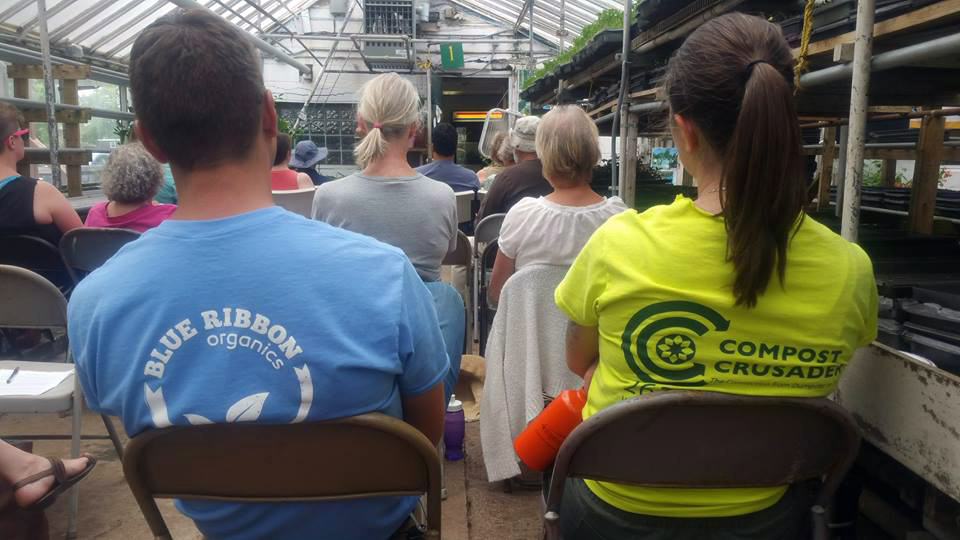Melissa Tashjian founded Compost Crusader to divert organic material from landfills in Milwaukee. The company serves businesses and schools, with two pilots underway with municipalities for residential service. “We’re creating a culture around sustainability that empowers customers to be able to divert their organic waste,” Melissa said.
Melissa started Kompost Kids, Inc., a Milwaukee nonprofit volunteer organization, five years before launching Compost Crusaders in April 2014. “That’s how I did all my market research,” she said.
At the start, Melissa’s largest challenge was logistical. “I was motivated by the environmental impact we could have. But at its core, Compost Crusader is a trucking company.” She knew truck driving wasn’t her dream job, and furthermore, she wasn’t a mechanic. “If I couldn’t figure out that hurdle, I would be spending too much money outsourcing,” she said. Her boyfriend, who owns a metal fabrication company, volunteered to fill the gap. Now he does maintenance and custom-fabrication for Compost Crusader’s fleet.
To finance her business, Melissa has used the Kiva loan platform, a personal loan, and personal savings originally intended for a new kitchen. She maintained a job as a waitress and did not draw a paycheck from the business for the first year. She is now one of three full-time paid staff and uses seasonal part-timers and independent contractors as needed.
SBDC provided network and 1:1 mentoring
“Being an entrepreneur was very new to me,” Melissa admitted. She attended events for entrepreneurs and learned about the SBDC network. Soon she became a client of the small business development center at UW-Milwaukee, working with Consultant Rick Gorko.
“Rick helped me figure out what my profit margins could look like, and how my pricing structure relates to that. He taught me how to use formulas and change the variables,” to do financial projections, Melissa said. Rick also helped her obtain certification as a woman-owned business registered with the City of Milwaukee, which made her eligible for city contracts. “That certainly helped grow her business,” Rick recalled. In early 2017 Compost Crusaders purchased a building to help accommodate that growth.
Motivated by business plan competitions
In 2016 Melissa decided to enter the Wisconsin Governor’s Business Plan Contest. “It was the first time I’d created a business plan,” Melissa recalled. “Some directions I felt quite confident in, but after talking to Rick, I reevaluated.” Melissa made it through the qualifying rounds and was invited to give a seven-minute pitch. Her plan earned second place in the Business Services category. In 2017 she applied again. Rick said, “We made a good plan better, the projections even tighter.” That time Melissa achieved first place in the Business Services category. The prize included cash and in-kind services.
“Rick helped me create a business plan that was a living document, that I could continue to improve and work off of,” Melissa said. “Until I created the business plan, I didn’t have measures. The second year, I looked at the goals in the plan and I’d hit them all! That was validating.”
Accomplishments with the SBDC of UW-Milwaukee:
- Business plan
- Financial projections
- Consulting
For growth, education as important as logistics
As Compost Crusaders grows, public education occupies more of Melissa’s time. That means creating messaging on how to separate waste properly. “We’re working on curriculum, handbooks, videos—focusing on educating people” so the company can grow, Melissa said. “My strong suit is not making the same mistake twice. When something doesn’t go as planned, I document it and use the example. We’re drawing our training content from our customers’ experiences, so we can get them started off on the right foot.”
